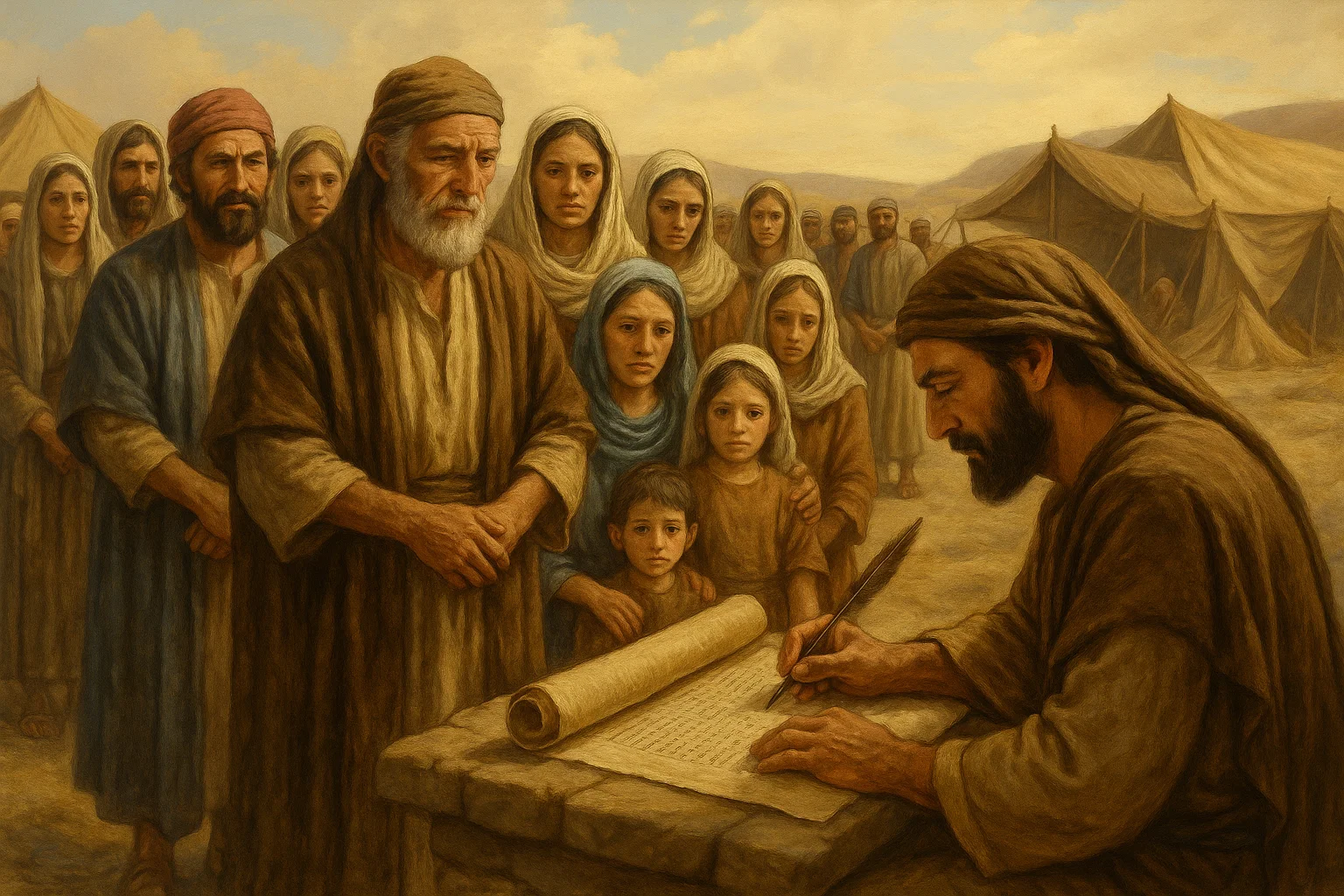 When you hear the word “census,” you may think of government workers going door to door, counting how many people live in a country. Today, censuses are about population numbers, resources, and planning for the future. But in the Bible, the word “census” carries far deeper meaning. It wasn’t just about numbers, it was about identity, God’s people, and even prophecy.
When you hear the word “census,” you may think of government workers going door to door, counting how many people live in a country. Today, censuses are about population numbers, resources, and planning for the future. But in the Bible, the word “census” carries far deeper meaning. It wasn’t just about numbers, it was about identity, God’s people, and even prophecy.
In this article, we’ll walk through what the Bible says about censuses: why they were taken, what purpose they served, and why one was ordered around the time of Jesus’ birth. Together, we’ll uncover not only the history but also the spiritual lessons hidden in those ancient headcounts.
Understanding the Word “Census”
The word census simply means “a numbering of the people.” It comes from Latin, meaning to assess or estimate. In the Bible, the census was often tied to counting men for military service or organizing tribes for worship and service in the tabernacle.
But unlike modern censuses that are run by governments every ten years, the biblical census was something God Himself sometimes commanded, or sometimes warned against. Numbers weren’t just statistics. Each number represented a soul, a person belonging to the covenant family of Israel.
To put it simply: a census in the Bible was more than counting heads. It was about knowing who God’s people were and where they belonged.
Why Did God Command a Census?
The most famous book connected with censuses is the Book of Numbers. In fact, it gets its English name because of the repeated counting of Israel’s people.
Two major censuses in Numbers:
First Census (Numbers 1): Right after the Israelites left Egypt, God commanded Moses to count the men able to fight. This wasn’t just about preparing for battle, it was about showing the people that they were organized, chosen, and accountable before God.
Second Census (Numbers 26): After 40 years in the wilderness, another census was taken before entering the Promised Land. This ensured each tribe received their inheritance fairly, according to their numbers.
So, why did God want these censuses?
To establish identity. The people weren’t a random crowd. They were twelve tribes with order and belonging.
To prepare for inheritance. The land of Canaan would be divided according to the size of each tribe.
To strengthen faith. Every name counted was a reminder of God’s promise to Abraham: “I will make your descendants as numerous as the stars in the sky.”
The census reminded Israel: God knows you. God counts you. God has a place for you.
The Warning Against Taking a Census
Interestingly, not all censuses in the Bible were approved by God. King David once ordered a census of Israel (2 Samuel 24; 1 Chronicles 21). This act angered the Lord, and judgment followed.
Why was this census wrong when others were commanded by God?
Motives mattered. David’s census wasn’t about following God’s instruction. Many scholars believe it was rooted in pride or a desire to measure military strength without relying on God.
It shifted trust. By numbering the people, David may have been leaning on human resources instead of divine power.
The lesson is timeless: it’s not wrong to count, but it is wrong to put your faith in numbers rather than God. Even today, we can fall into the trap of measuring success by statistics instead of spiritual faithfulness.
Why Was There a Census When Jesus Was Born?
The New Testament also speaks of a census, one that shaped the very story of Christ’s birth.
Luke’s Gospel tells us that Caesar Augustus ordered a census of the entire Roman world (Luke 2:1–5). Everyone had to return to their ancestral towns to be registered. That’s why Joseph and Mary traveled from Nazareth to Bethlehem, the city of David.
This wasn’t a divine command like in Numbers. It was a Roman political order. Yet God used it to fulfill prophecy: the Messiah would be born in Bethlehem, as foretold in Micah 5:2.
So even though Rome thought it was flexing its power by numbering people for taxation and control, God was quietly weaving His salvation plan. The census became the tool that brought Mary and Joseph to the right place, at the right time, for the Savior’s birth.
What Was the Purpose of a Census in the Bible?
From all these examples, we can see multiple purposes of biblical censuses:
Organization: Israel wasn’t a scattered crowd. Each tribe, family, and individual had a role.
Preparation for service: Men were counted for military defense and for service in the temple.
Fairness and inheritance: The Promised Land was divided justly, based on census results.
Spiritual accountability: Each name represented a covenant member before God.
Fulfillment of prophecy: The Roman census in Jesus’ day aligned perfectly with God’s eternal plan.
The Spiritual Meaning Behind the Census
When you look deeper, a census wasn’t really about numbers, it was about belonging. God doesn’t just count heads. He knows names. He knows stories. He knows destinies.
The census reminds us that:
We are not forgotten in the crowd.
Each of us matters to God.
God’s promises extend to every generation.
Just as the Israelites were counted tribe by tribe, you and I are known individually by God. Jesus said in Matthew 10:30, “Even the very hairs of your head are all numbered.” That’s more than statistics, that’s love.
What Is the Full Meaning of Census in the Bible?
If we put it all together, the census in the Bible means:
A recognition of people’s place in God’s family.
A preparation for responsibility, whether in war, worship, or inheritance.
A reminder that God’s people are many, yet each person matters.
A warning not to trust in numbers, but in God who gives the increase.
It’s easy to think of censuses as dry, boring lists. But in Scripture, they hold powerful lessons about faith, humility, organization, and God’s providence.
Lessons for Us Today
The Bible’s teaching on censuses still speaks into modern life. Here are a few reflections:
Your name is known. Just as Israel’s names were recorded, your life is written in God’s book.
Numbers aren’t everything. Don’t measure your worth by statistics, followers, money, possessions. Trust God’s measure of value.
God works through the ordinary. Even something as mundane as a Roman census became the stage for the greatest story ever told.
Order matters. God isn’t a God of chaos. He values structure, community, and fairness.
A Gentle Encouragement
Friend, when you read about censuses in the Bible, don’t skim over them as if they’re dull lists. Behind every name is a story, behind every count is a promise, and behind every census is a God who knows His people personally.
Whether in the wilderness of Sinai or the streets of Bethlehem, God was present, counting, guiding, and fulfilling His word. And today, He hasn’t stopped. He still sees you, knows you, and counts you among His children.
Final Thoughts
So, what is a census in the Bible?
It is both a record and a reminder, a record of who belonged to God’s people and a reminder that each person counted. From the censuses in Numbers to the decree of Caesar Augustus, the Bible’s censuses show us that God’s plans are never random.
They reveal that even in headcounts, God’s hand is at work. And they remind us that we are more than numbers, we are beloved children of the Most High, each one known and cherished.












